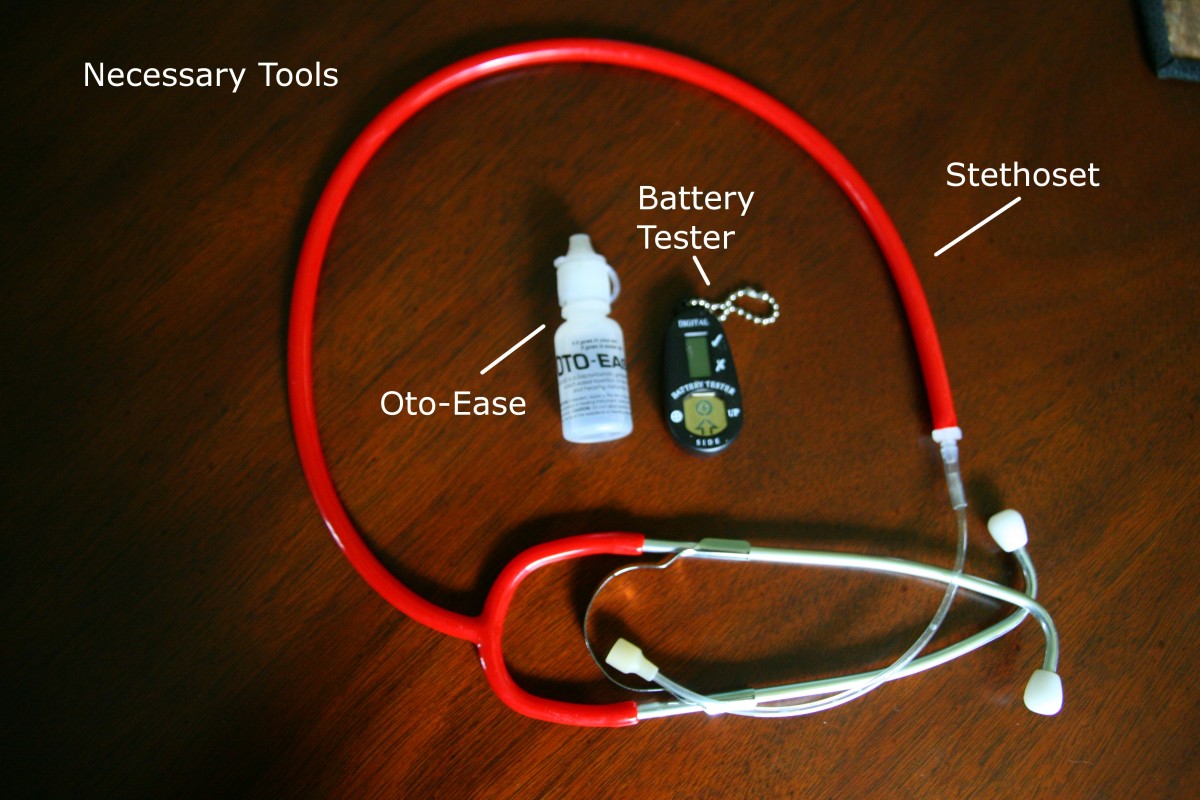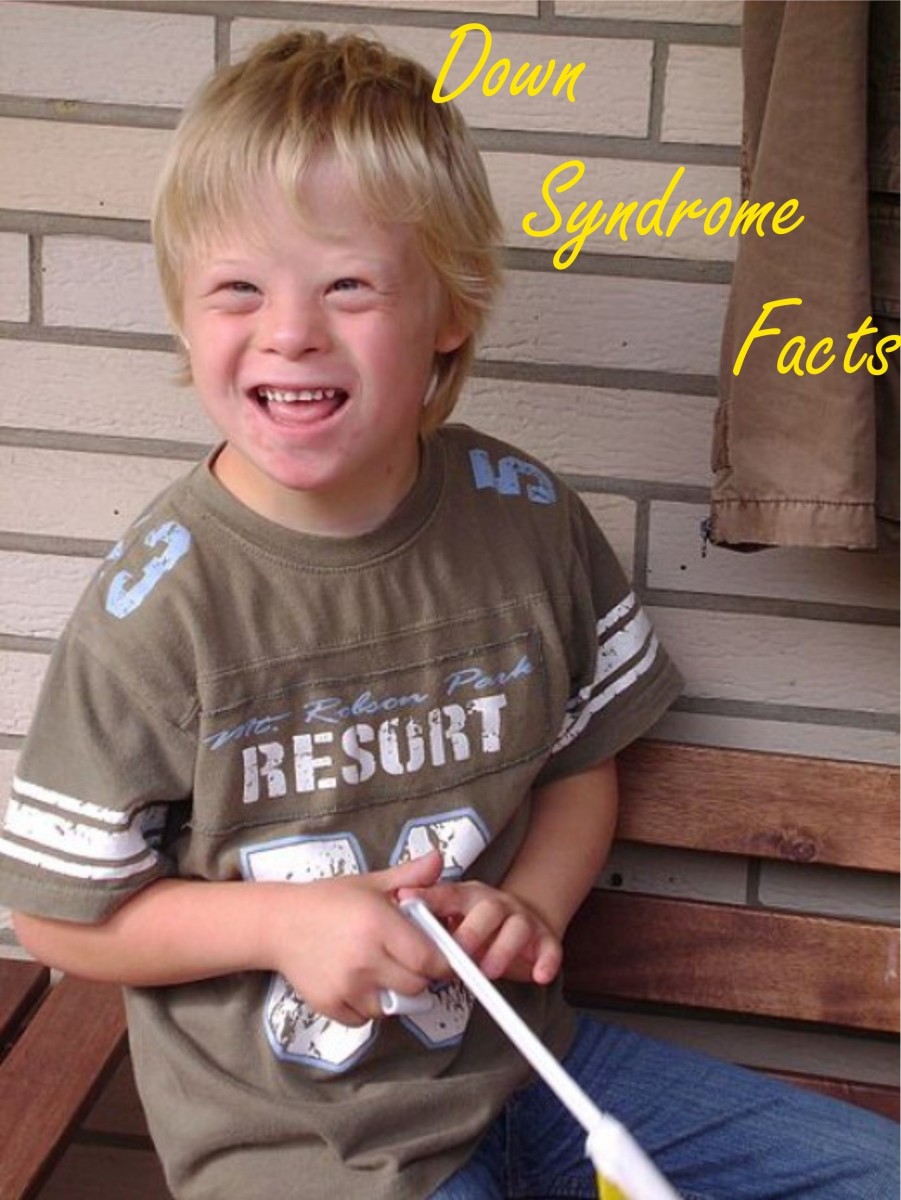What are Learning Disabilities and Learning to Live with Them: My Son's Story
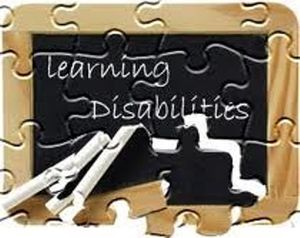
Prologue: My Three Sons
Learning disabilities affect adults and children alike in larger numbers than might be realized. According to the Learning Disabilities Association of Peterborough, one in ten Canadians is affected by a learning disability.[1] According to the U.S. Department of Education, learning disabilities affect about 5% of all children enrolled in public schools.[2] Self-esteem, school success, and as an adult job success and societal integration are all negative aspects which can affect the lives of those living with these learning differences. Al though I would not consider myself an expert, I have vast experience dealing with children having these learning differences.
My middle son, although not learning disabled, has been identified by our school board as intellectually gifted. School is very easy for him because of his unique set of learning differences including an incredible ability to focus despite enormous distractions and a unique set of cerebral neurons with advanced capabilities in the storage and retrieval of information. He does not often become bored as his independence allows him to discover his own avenues of extra learning. He also actively participates in extracurricular programs, such as the Queen’s University SEEDS program which allows him a three to five day stay at the University exploring an academic subject at an advanced level with other like-minded children his age.
My youngest son struggled somewhat in his early school years, lagging behind in the areas of reading and math. His learning style is very unique requiring extreme body motion to assimilate information. He is an extreme kinesthetic learner. Studying for tests and memorizing speeches provides entertainment value, watching him as he paces back and forth while recalling answers or memorizing text. It seems his brain is hardwired to his muscular movement. During his primary years, he received tutoring through a specialized program at our local learning disabilities centre. Until grade three, he received tutoring in the area of reading through this same organization. Extra work at home in reading drills and reinforcement in areas of math not comprehended in the classroom also contributed to his later success in the classroom. The extra home work was not always appreciated at the time but later success in the classroom made it all worthwhile. My youngest son is now working above grade level in most areas, is confident in the classroom and although new math concepts still can provide an extra challenge, he faces these difficulties with new fervor. He desires greatly to succeed and works hard to ensure success happens!
My oldest son was diagnosed with a ‘learning disability’ in grade six. His learning difference stems from an inability of his brain to visually assimilate information at a rapid pace. He has what is referred to as a visual processing disability. In other words, he processes visual information at an extremely slow rate. For him it means that he reads text one word at a time. Most of us can read words in a group and make certain predictions as to what comes next to increase reading speed. We recognize phonetic patterns and apply that knowledge to read unfamiliar words and to easily learn to recognize the same word when we see it again later. Slow visual processing resulted in my older son’s reading acquisition to be very slow. His dyslexia became more aparent as text became smaller and the amount of text increased.
[1] Learning Disabilities Association of Peterborough. www.ldaptbo.com . Feb.1, 2012
[2] Kenyon, Rochelle, Ed.D. Bridges to Practice: Florida’s Focus on Adults with Learning Disabilities. www.floridatechnet.org/bridges/factsandstats.pdf . Feb.1, 2012
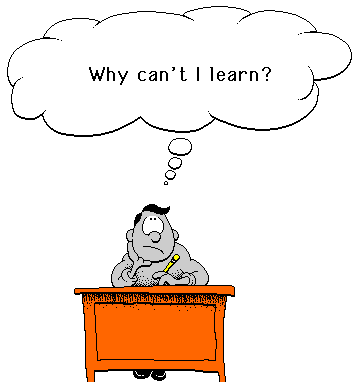
Oldest Son in Particular
Reading will always be a challenge for my oldest son as will writing and spelling as he can only focus on one word at a time. Copying notes is very slow, as he can only remember one word per look at the board.
Grade six seemed to be the crucial year when his problems came to a head. Prior to that year, extra help at home with mom and dad helped him over many hurdles. He worked very hard with mom on reading drills to gain better reading fluency. Written work took a lot longer for him providing additional frustration but with someone helping to scribe for him, the pressure was reduced. Grade six was a heartbreaking year for him. He was depressed and despondent often. As a bright child, he found it frustrating and degrading that he couldn’t keep up with his classmates. His self-confidence dropped even further and although he had never found school enjoyable, his frustration peaked in this year. He fidgeted in class tremendously to relieve the stress and was reprimanded often. It was strongly implied he had ADHD which since sitting still in a desk had never been his forte may not have seemed illogical to most educators. One of his teachers finally suggested that it might be worthwhile for my husband and me to get psychological testing done for him on our own. Worried about our son’s extreme frustration and depression we took that route. He had been receiving tutoring at the same Learning Disabilities organization as his younger brother. A ‘Computers for Literacy Program’ focussing on reading skill acquisition paired with the use of assistive computer technology such as Kurzweil, Word Cue and Inspiration had been helping him since halfway through Grade four. They also provided my husband and me with the guidance to find a psychologist and advocacy to deal with any arising school board issues. It was through his psychological testing that we discovered his visual processing speed was in the 5th percentile of the population while his auditory processing was in the 99th percentile of the population. This huge discrepancy in abilities helped to solidify the position that he was dealing with a true disability negatively affecting his school performance. As his intelligence quotient also tested as slightly above average, this also contributed to his classification.
Some parents fight to not have their children given an exceptional diagnosis with the school system but it has provided two of my kids with resources essential to their success and well-being at school. My middle son has [1]received extra programming to feed his intellectual giftedness while my oldest son has received assistive technology and program support which is contributing to his success at school. He uses a school assigned laptop having Kurzweil and Word Cue for spelling and reading text to him. He writes many of his tests in school using Kurzweil to read the test to him utilizing his superior auditory skills. He also receives extra time for tests and assignments when necessary to give him the ‘time frame’ in which to be successful. Especially in English, novels are presented to him in auditory format so he can listen while reading which greatly enhances his ability to concentrate on the story itself rather than on individual words improving his comprehension dramatically.
[1]Crouse, Scott L. Uncovering the Mysteries of your Learning Disability. 2009
Defining Learning Disability
Scott Crouse states, “A learning disability is a disorder in one or more of the basic psychological processes involved in understanding and using language spoken or written which may manifest itself in an imperfect ability to listen, think, speak, read, spell, or do mathematical calculations.”[1]
There are two main parts to a learning disability:
- processing differences;
- discrepancy
A person with a learning disability processes information differently than the general population. Some kinds of information get stuck or lost while traveling through the brain. Think of yourself traveling through deep snow. Each step is difficult and you take much longer to reach your destination on top of dealing with the frustration of stumbling and slipping. A person with a learning disability is always working in deep snow and the frustrations that go along with this terrain.
In addition, a person with a learning disability has a discrepancy between their ability to succeed and their actual achievement. Persons with a learning disability can be just as smart as the person next to them but their grades do not show this ability. Despite appearances, this discrepancy is not due to laziness, lack of ability or anything else. Persons with a learning disability learn differently than others.[2] They do not have a disease which can be cured. Learning disabilities are not outgrown. The LD person must develop lifetime strategies to cope and be successful.
Information processing refers to the following brain activities:
- how the brain takes in information;
- how the brain uses this information;
- how the brain stores this information in memory;
- how it retrieves this information;
- how this information is expressed.
Persons with a learning disability, have difficulty with one or more of the above activities. Information in certain parts of an LD brain gets ‘bogged down’ which is why some information is slower and more difficult than other information types for an LD person to learn. In the area of the brain affected, the LD person never acquires the ‘automatic pilot’ which allows a person to learn new information without being consciously aware of the act of learning.[3]
[1]Crouse, Scott L. Uncovering the Mysteries of your Learning Disability. 2009
[2]LDInfo. www.ldinfo.com/learning_disability.htm. Feb. 1, 2012
[3]www.psychologists.biz/Processing_Speed_Disability.html. Feb 1, 2012
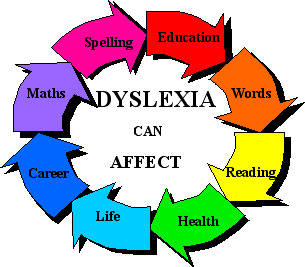
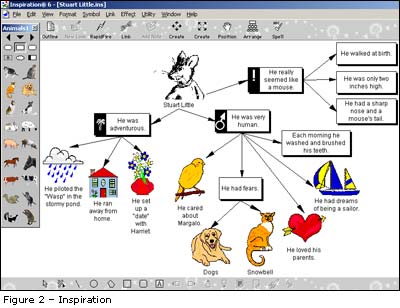
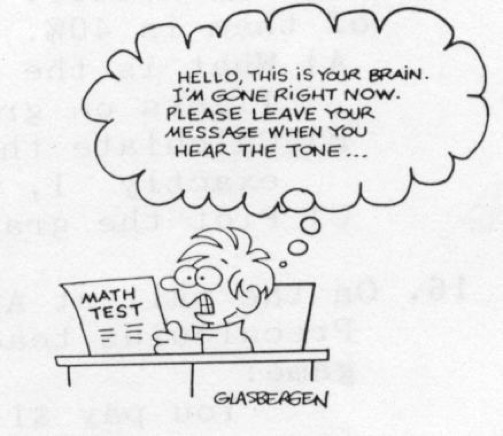
Persons with a processing speed disability often have difficulties in one or more academic areas due to the slow processing speed. This slow processing speed affects many learning areas such as:[1]
- oral or verbal fluency often resulting in slow speech and/or delays in responding especially to open-ended questions;
- slow reading speed (dyslexia) which affects reading comprehension due to the person’s need to focus on the mechanics of reading rather than the meaning of the words being read;
- writing speed which affects the ability to efficiently and quickly write coherent text due to the impairment in the ability to use words and grammar construction correctly;
- lack of math fluency may result in lower achievement in math computations and/or math reasoning also affected by poor vigilance (sustained focal attention) and deficits in working memory capacity;
- social function of the LD person may be affected as they feel social pressure to perform ‘faster’.
Slow visual processing speed including dyslexia often benefit from the following interventions at school and at home:[2]
- quiet reading area;
- audio books;
- large print books;
- lack of penalty for spelling (in school grading);
- laptop for writing;
- multi-strength methods of teaching (activities centered on strengths such as kinesthetic, auditory, athletic, artistic etc.);
- using logic rather than rote memory in school evaluation;
- use of assistive technology such as Kurzweil (for audio reading of text and tests), Word Cue (for spelling) and Inspiration (graphic organizer for writing activities);
- restrict copying of notes by providing photocopies when possible;
- allow the dictation of creative stories.
My middle son suffers from primarily a visual processing problem and has benefitted tremendously from most of these accommodations. Most of them are included in his Individual Education Plan (IEP) that is updated each school year.
[1]www.psychologists.biz/Processing_Speed_Disability.html. Feb. 1, 2012
[2] Cossette, Gale E. Ph.D. Specific Learning Disabilities: A Neurological Disorder. www.slideshare.net/mobile/MyGaley/specific-learning-disabilities . Feb. 1, 2012.
Epilogue
My oldest son is a likable, now well-adjusted person enrolled in a university oriented high school program. He struggles at times with the tremendous effort it costs him to succeed but he persevered none the less. He still receives tutoring from our local Learning Disabilities Association in Peterborough and will upgrade certain courses in the summer to solidify his learning where needed. He has appeared on our local news openly discussing his LD and does not hide his need for extra support in school. He recently spoke with a group of elementary aged students in a SoAR (Some Assembly Required) program which prepares students to enter high school confidently and successfully. He confidently and with charm and grace answered all of their questions. I am proud of the young man he has become. Thankfully, his visual perception did not impede his ability to play football which provides a physical outlet for him. He just passed his G2 driving test on the first try! School will always be a test of his endurance but he will persevere and be successful in whatever his future goals may be.









